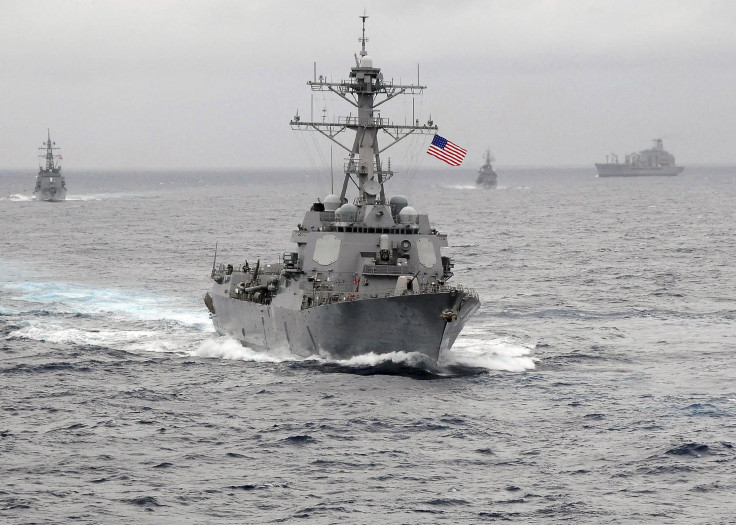As China Warns Of War With US Over South China Sea, Australia Debate Naval Patrols In Support Of Freedom Of Navigation

As the U.S. and China exchanged hostile words this week over naval patrols in the South China Sea, Australia said it would continue its plans to hold joint naval drills with Beijing even as Australian defense leaders urged their government to back Washington up. Beijing called U.S. patrols in the South China Sea this week "dangerous and provocative."
An Australian defense spokesperson confirmed this week the naval exercises involving two Anzac-class frigates off the southern coast of China. "The Royal Australian Navy has a long history of engagement with regional navies and regularly conducts port visits and exercises - including in China," the spokesperson said. "No upcoming engagement activities with the People's Liberation Army Navy have been delayed, suspended or canceled."
The Obama administration signaled this week it does not accept Beijing's claims to ownership of the strategically vital waters after China built several man-made islands in the area. China claims nearly the entire sea as its maritime territory, despite overlapping claims by Brunei, Malaysia, the Philippines and Vietnam.
Australian Defense Minister Marise Payne said he supported Washington and the principle of freedom of navigation. But one of Australia's leading defense analysts, Peter Jennings of the Australian Strategic Policy Institute, has called on the government to go further and carry out its own patrols in support of the region's freedom.
"My sense is that China's next tactic will be to try to create the impression that this is just the U.S. Therefore [Beijing] is going to be putting a lot of diplomatic pressure on us and everyone else not to follow suit. That makes it critically important that we make our own assertion of freedom of navigation," Jennings said, noting that 60 percent of Australia's exports passed through the waters.
China responded harshly to the U.S. naval patrols Tuesday in the South China Sea. The Global Times, a state-run newspaper with links to the Chinese Communist Party, accused the Pentagon of provoking China this week. “In [the] face of the U.S. harassment, Beijing should deal with Washington tactfully and prepare for the worst,” the newspaper argued in an editorial Wednesday. “This can convince the White House that China, despite its unwillingness, is not frightened to fight a war with the U.S. in the region and is determined to safeguard its national interests and dignity.”
© Copyright IBTimes 2024. All rights reserved.





















